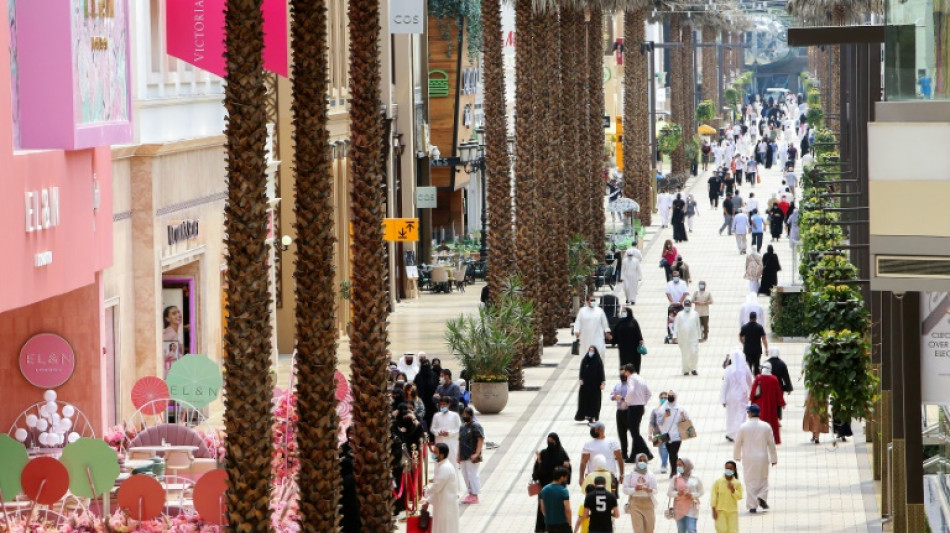
-
 Observing quantum weirdness in our world: Nobel physics explained
Observing quantum weirdness in our world: Nobel physics explained
-
WTO hikes 2025 trade growth outlook but tariffs to bite in 2026
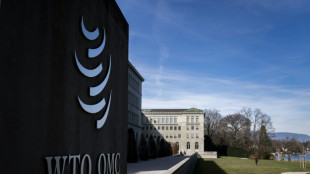
-
 US Supreme Court hears challenge to 'conversion therapy' ban for minors
US Supreme Court hears challenge to 'conversion therapy' ban for minors
-
Italy's Gattuso expresses Gaza heartache ahead of World Cup qualifier with Israel

-
 EU targets foreign steel to shield struggling sector
EU targets foreign steel to shield struggling sector
-
Djokovic vanquishes exhaustion to push through to Shanghai quarterfinals

-
 Stocks, gold rise as investors weigh AI boom, political turmoil
Stocks, gold rise as investors weigh AI boom, political turmoil
-
Swiatek coasts through Wuhan debut while heat wilts players

-
 Denmark's Rune calls for heat rule at Shanghai Masters
Denmark's Rune calls for heat rule at Shanghai Masters
-
Japanese football official sentenced for viewing child sexual abuse images
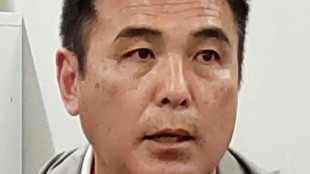
-
 'Veggie burgers' face grilling in EU parliament
'Veggie burgers' face grilling in EU parliament
-
Trio wins physics Nobel for quantum mechanical tunnelling

-
 Two years after Hamas attack, Israelis mourn at Nova massacre site
Two years after Hamas attack, Israelis mourn at Nova massacre site
-
German factory orders drop in new blow to Merz
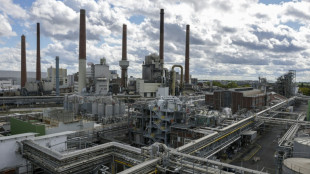
-
 Man City star Stones considered retiring after injury woes
Man City star Stones considered retiring after injury woes
-
Kane could extend Bayern stay as interest in Premier League cools

-
 Renewables overtake coal but growth slows: reports
Renewables overtake coal but growth slows: reports
-
Extreme rains hit India's premier Darjeeling tea estates

-
 Raducanu retires from opening match in Wuhan heat with dizziness
Raducanu retires from opening match in Wuhan heat with dizziness
-
UK's Starmer condemns pro-Palestinian protests on Oct 7 anniversary

-
 Tokyo stocks hit new record as markets extend global rally
Tokyo stocks hit new record as markets extend global rally
-
Japan's Takaichi eyes expanding coalition, reports say
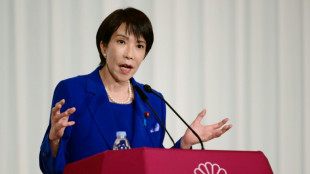
-
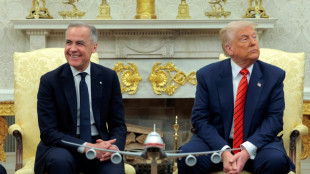 Canadian PM to visit White House to talk tariffs
Canadian PM to visit White House to talk tariffs
-
Indonesia school collapse toll hits 67 as search ends

-
 Dodgers hold off Phillies, Brewers on the brink
Dodgers hold off Phillies, Brewers on the brink
-
Lawrence sparks Jaguars over Chiefs in NFL thriller

-
 EU channels Trump with tariffs to shield steel sector
EU channels Trump with tariffs to shield steel sector
-
Labuschagne out as Renshaw returns to Australia squad for India ODIs

-
 Open AI's Fidji Simo says AI investment frenzy 'new normal,' not bubble
Open AI's Fidji Simo says AI investment frenzy 'new normal,' not bubble
-
Tokyo stocks hit new record as Asian markets extend global rally

-
 Computer advances and 'invisibility cloak' vie for physics Nobel
Computer advances and 'invisibility cloak' vie for physics Nobel
-
Nobel literature buzz tips Swiss postmodernist, Australians for prize

-
 Dodgers hold off Phillies to win MLB playoff thriller
Dodgers hold off Phillies to win MLB playoff thriller
-
China exiles in Thailand lose hope, fearing Beijing's long reach

-
 Israel marks October 7 anniversary as talks held to end Gaza war
Israel marks October 7 anniversary as talks held to end Gaza war
-
Indians lead drop in US university visas

-
 Colombia's armed groups 'expanding,' warns watchdog
Colombia's armed groups 'expanding,' warns watchdog
-
Shhhh! California bans noisy TV commercials

-
 Global Scams on the Rise: Over Half of Adults Worldwide Report Scam Encounters, 23% Lost Money
Global Scams on the Rise: Over Half of Adults Worldwide Report Scam Encounters, 23% Lost Money
-
HotelRunner and Visa Partner Globally to Power Embedded and Autonomous Finance in Travel

-
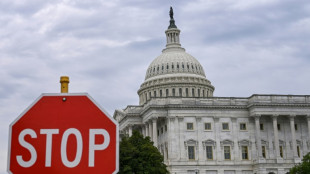 Trump 'happy' to work with Democrats on health care, if shutdown ends
Trump 'happy' to work with Democrats on health care, if shutdown ends
-
Trump says may invoke Insurrection Act to deploy more troops in US

-
 UNESCO board backs Egyptian for chief after US row
UNESCO board backs Egyptian for chief after US row
-
Unreachable Nobel winner hiking 'off the grid'

-
 Retirement or marketing gimmick? Cryptic LeBron video sets Internet buzzing
Retirement or marketing gimmick? Cryptic LeBron video sets Internet buzzing
-
CAF 'absolutely confident' AFCON will go ahead in protest-hit Morocco
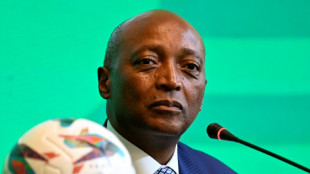
-
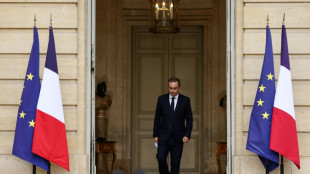 Paris stocks slide amid French political upheaval, Tokyo soars
Paris stocks slide amid French political upheaval, Tokyo soars
-
EU should scrap ban on new combustion-engine sales: Merz

-
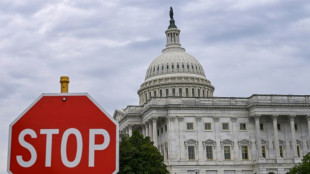 US government shutdown enters second week, no end in sight
US government shutdown enters second week, no end in sight
-
World MotoGP champion Marquez to miss two races with fracture


'Great misery': Kuwait political crisis drags down economy
A seemingly never-ending political crisis is plunging oil-rich Kuwait's economy into the mire, affecting basic services and causing mounting public concern.
Despite its large oil reserves, hospitals and educational services are in decay as squabbling paralyses the wealthy Gulf region's only fully elected parliament.
Ahmed al-Sarraf, a businessman and newspaper columnist, says his concerns are growing as the country falters.
"I feel great anxiety for my family, for the future of my grandchildren, for their education, and for my health," the former banker told AFP.
"This situation is generating great misery."
Kuwait, which borders Saudi Arabia and Iraq, is home to seven percent of the world's crude reserves. It has little debt and one of the strongest sovereign wealth funds worldwide.
However, it suffers from constant stand-offs between elected lawmakers and cabinets installed by the ruling Al-Sabah family, which maintains a strong grip over political life, despite a parliamentary system in place since 1962.
The stasis has prevented lawmakers from passing reforms to diversify the economy, while repeated budget deficits and low foreign investment have added to the air of gloom.
The latest twist came last month, when the constitutional court dissolved an opposition-controlled assembly over alleged electoral irregularities and reinstated the previous parliament.
- 'Political dysfunction' -
Kuwait's parliament has now been dissolved around a dozen times in its 61-year history.
In January, Kuwait's government resigned three months after it was sworn in due to disputes with lawmakers. It was the sixth government in just three years.
Kuwait's neighbours the UAE, Saudi Arabia and Qatar have managed to transform their desert nations into booming modern metropolises, largely thanks to oil wealth and foreign investment.
Led by a new generation of rulers, they are stepping up projects to wean their hydrocarbon-centred economies away from oil.
Meanwhile Kuwait, led by 82-year-old Crown Prince Mishal al-Ahmad al-Jaber Al-Sabah, is struggling to implement a reform plan adopted in 2018.
"We were a liberal and innovative country in the 1980s... but we died out while the countries around us developed," the businessman Sarraf said.
According to economist Justin Alexander, "political dysfunction" has kept Kuwait from living up to its full economic potential.
The paralysis "has prevented it from taking painful reforms to control spending growth, generate non-oil revenue, diversify its economy or even invest to maintain its oil production capacity," the Gulf expert said.
Kuwait, which posted large deficits during the Covid-19 pandemic, was buoyed last year by the rise in oil prices, which generate most of the state's income.
But as prices stabilise, the country's budget deficit is expected to widen.
- Kuwait 'needs a reset' -
In January, the caretaker cabinet submitted a draft 2023-2024 budget that projected a deficit of five billion dinars (more than $16 billion) for the year starting in April.
That compares with a 1.35-billion-dinar surplus expected for the current year, according to Bloomberg.
Before Kuwait's last cabinet resigned in January, it had promised to tackle state spending and fight corruption.
It stepped down to outmanoeuvre lawmakers who were pressing ministers to pass a costly debt relief bill that would grant a debt amnesty for Kuwaiti citizens.
Kuwait "has a governance crisis", said researcher Kristin Diwan, of the Arab Gulf States Institute in Washington.
This is "apparent in systemic malaise, in failures of planning and in mounting social woes", including over the deterioration of public services, the expert said.
While politicians squabble, Kuwaiti citizens are paying the price, said Bader al-Saif, assistant professor of history at Kuwait University.
The "Kuwaiti street is exhausted," he said on Twitter, decrying a "perpetual impasse".
"Kuwait's politics needs a reset," Saif added, calling for a national dialogue and a new constitution.
A.Gasser--BTB


